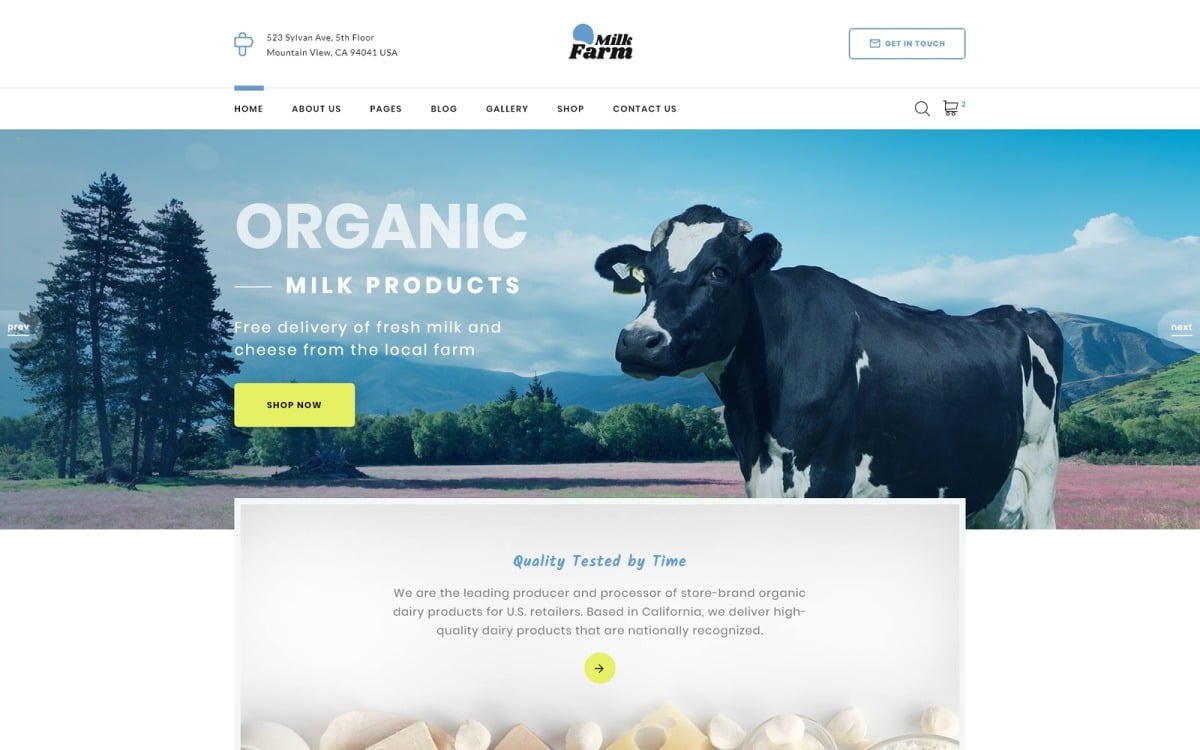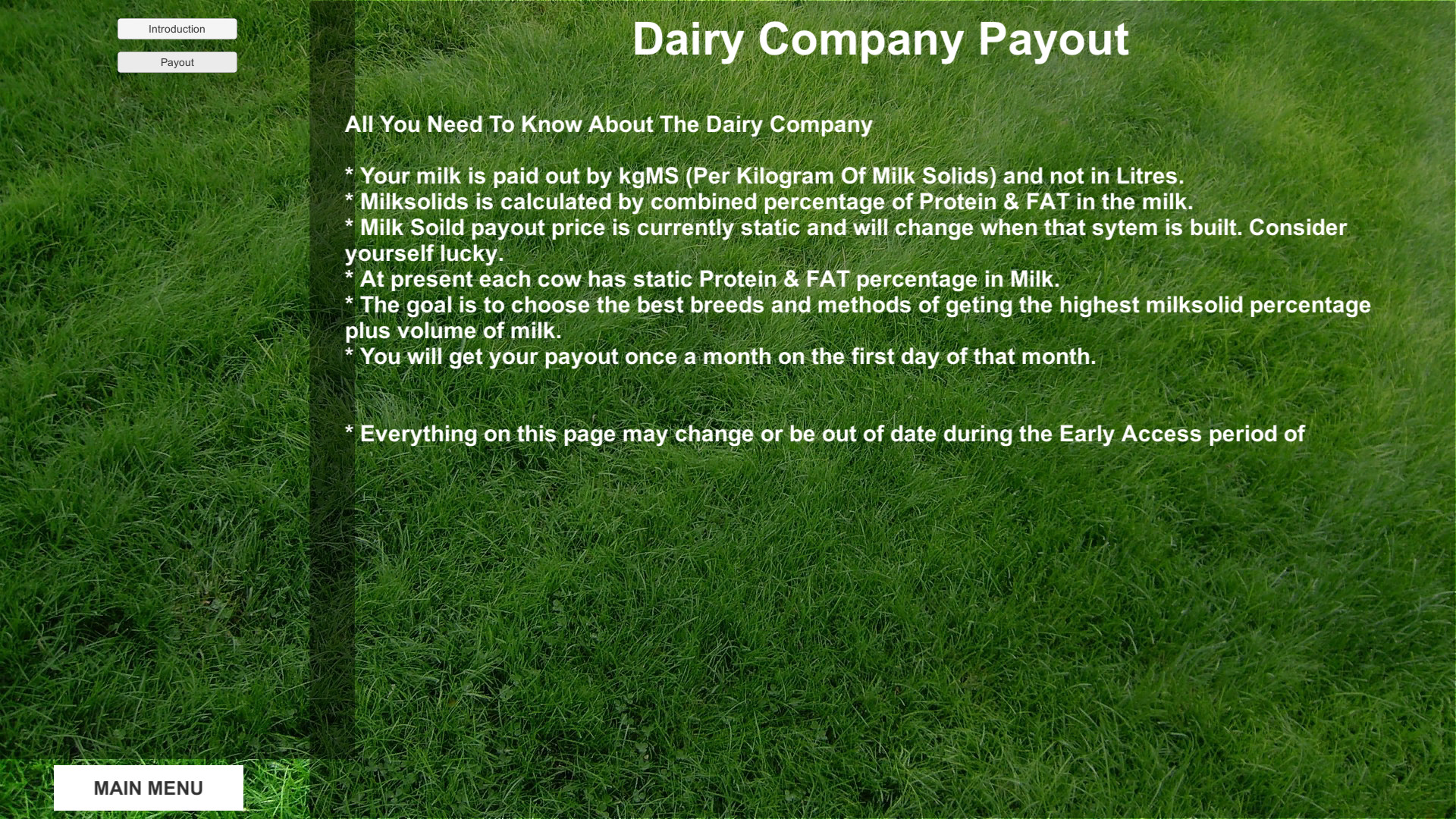Milk Farm Mac OS
For years the standard in biomass byproduct removal has been the use of landfills. Not only are they inefficient, but they’re dangerous as well – contaminating soil, groundwater, and emitting dangerous gases. Through the Anaerobic Digestion process, Mac Farms uses bacteria to help break down biomass byproducts, creating methane gas which can then be used to produce electricity. Your waste goes from being an inconvenient environmental pollutant to a valuable energy resource.
With convenient, safe and simple access to our facility, we can easily facilitate your transport preference to help get your refuse in an eco-friendly location. Not only will you feel better knowing that your waste isn’t just taking up space, but you’ll also have the assurance of knowing that you are becoming a leading contributor to the protection of our environment.
Featured Articles

Milk Farm Restaurant was a restaurant in Dixon, California off I-80, that played a big part in Dixon's dairy economy during World War II. It was considered to be the city's landmark. Hess had the idea to build the Milk Farm restaurant in 1919, and it was finally built in Dixon in 1928. Download Milk 2.3 for Mac from our website for free. Our antivirus scan shows that this Mac download is malware free. The program relates to Communication Tools. This software for Mac OS X was originally designed by Tatami Software. Milk Farm is a world space encompassing a total of 15 cells of which 8 cells are playable/navmeshed. Your followers may not wander around to the different cells. You can assign them to sleep in one area and 'work' in other areas. Elsie Lavache for MME. 2,491 likes 25 talking about this 1,523 were here. Milkfarm is a neighborhood cheese shop with hundreds of international and domestic cheeses. We feature ACS winning cheeses, artisan. MacFarms Macadamia Nut snacks allow you to feel better about enjoying something you love. Our delicious Natural or Sea Salt Macadamia Nuts are great for a nutrient packed snack. These two choices are great to keep on hand and they offer a good source of iron and magnesium as well as other health benefits. Our Milk Chocolate Covered, Kona Coffee Dark Chocolate Covered and our delicious flavors.
The Mac Farms Digestion Laboratory is an on-site process control laboratory located in the operation control center. Daily tests are performed on both the bladder and tank digesters. Currently, Percentage Total Solids (TS) is also analyzed on both digestates 2-3 times per week, with additional TS testing analyzed on belt filter press solids during press operation. Belt Press analysis includes jar testing polymer and coagulant dosages. Other process testing includes pH testing of incoming waste loads that are sent (fed) to the bladder. The Mac Farms Digestion Laboratory, although currently in its growing stages, will eventually include organic load testing and percent reduction. There is also interest in microscopy to monitor the digesters’ bacteria population with emphasis on key microorganism presence or absence, ultimately revealing the system’s health. Other testing may also include biogas composition and purity analyses.
WASTE PREPARATION
Once your biomass byproducts are delivered to our facility, we begin a pre-treatment process with the material so that it can be introduced into our Anaerobic Digester. Mac Farms then introduces special bacteria, or “bugs”, that consume your refuse and break it down even further through the Anaerobic Digestion process.
DIGESTION
Following your refuse pre-treatment, all materials are then loaded into the digester. The digester bacterium will then begin conversions of the organic compounds within your waste to methane and CO2.
RENEWABLE RESOURCES
One byproduct of the digestion process is biogas, which can be collected and converted to electricity. The remaining materials are stabilized, cured and de-watered, resulting in a rich organic fertilizer and compost additive.
Anaerobic digesters utilize either mesophilic or themophilic bacteria. At Mac Farms, Inc., we utilize mesophilic bacteria, which requires much lower environmental temperatures between 68F and 113F, with optimal temperatures at 99F.
Yes, we do have a power purchase agreement with East Kentucky Power and Taylor County RECC.
Mac Farms, Inc. accepts paper pulp sludge, stillage, food waste, some DAF sludge, and some types of FOG. At this time, we do not accept unpackaged waste streams, but can accept both thick or thin stillage. Mac Farms, Inc. does not accept any type of human waste.

Digestate collected at the end of the process is used as a liquid fertilizer for our crops.
Milk Farm Mac Os 11
Milk Farm Mac Os X
Tipping fees are based on the type of waste and how difficult it is to process. Feel free to contact us if you would like to discuss applicable fees for your business.
No, however feed stock temperatures are considered in tipping fee pricing.